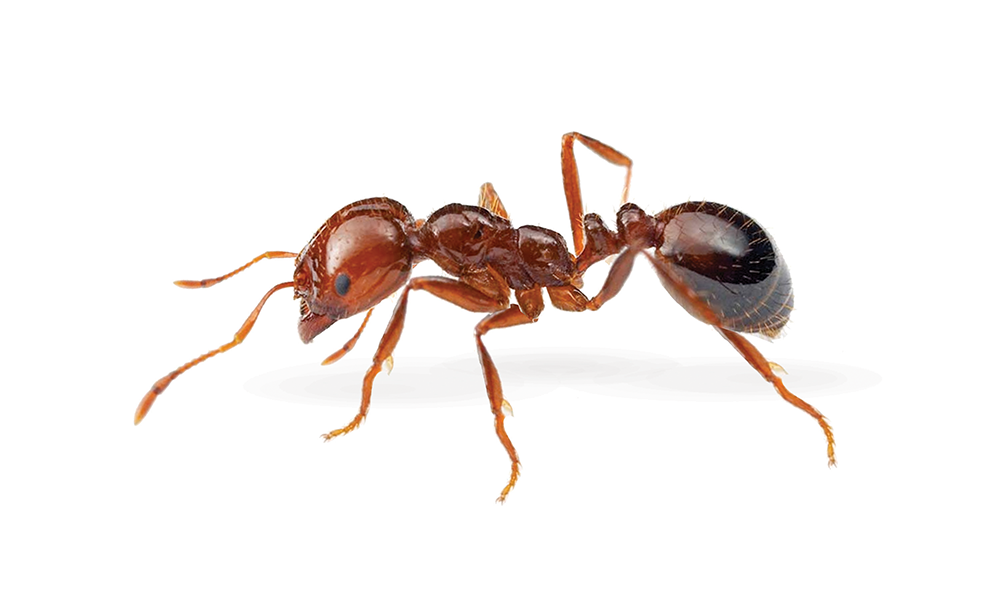Pasture Fire Ant Control
Protect Your Pasture: Extinguish® Plus
Your pasture is a haven for livestock grazing, for forage plant growing, for the enjoyment of your investment. Fire ant infestations can pose a threat to the peaceful haven of your pasture. Even more concerning, stings from fire ants can harm or even kill livestock, especially the young. When fire ants settle into livestock pastures, they often forage for food or moisture in the same areas where livestock graze, according to NC State Extension Publications. Fire ant control in pastures is critical to the protection of workers, livestock, and your overall investment in your pasture.
Central Life Sciences has an answer to fire ant activity in pastures, providing an effective, economical control solution.
Extinguish® Plus fire ant bait
- Designed to offer both short-term and long-term relief from fire ants endangering pastures and livestock
- Combines the killing power of an adulticide, Hydramethylnon, and the long-lasting control of an insect growth regulator (IGR), (S)-methoprene
- Colony reduction begins in about 1 week and colony elimination may be seen within 2 weeks
- Broadcast – 1.5 pounds of product per acre
- Available in 1.5 lb., 4.5 lb. and 25 lb. containers
- USDA Imported Fire Ant Quarantine Approved
Extinguish® Plus is formulated for dry conditions and should not be applied within 6 hours of a rain event. Fire ants will not be attracted to wet bait. Take care to apply product when pastures are dry from dew or irrigation.
Learn more about the fire ants Extinguish® Plus will control on your pastures to protect livestock:

Red Imported Fire Ants
Both imported and native red fire ants damage costly agriculture equipment with their tall, hardened mounds. They adversely impact your pasture, and put you and livestock at risk with their painful, sometimes fatal stings.

Southern California Fire Ants
Mostly found in Southern California, this fire ant is typically smaller than the red imported fire ant, but is also capable of extensive damage to your livestock and painful stings. Particularly sensitive to footsteps, the Southern fire ant colony is poised to attack given any disturbance to their mound.

Harvester Ants
With underground nests and small mounds, harvester ants feed on seeds and are also capable of painful stings that can be fatal to small animals. They pose a threat to both wildlife and people when their colonies are disturbed.

Big-Headed Ants
Big-headed ants nest in soil, typically underneath debris and equipment left on the ground. As indicated by the name, they are identifiable by their big heads, and they feed on seeds and honeydew.

Argentine Ants
Argentine ants have a small stature, and build shallow nests underground. What makes them particularly troublesome is that one colony can have multiple queens, which makes them poised for rapid growth.


